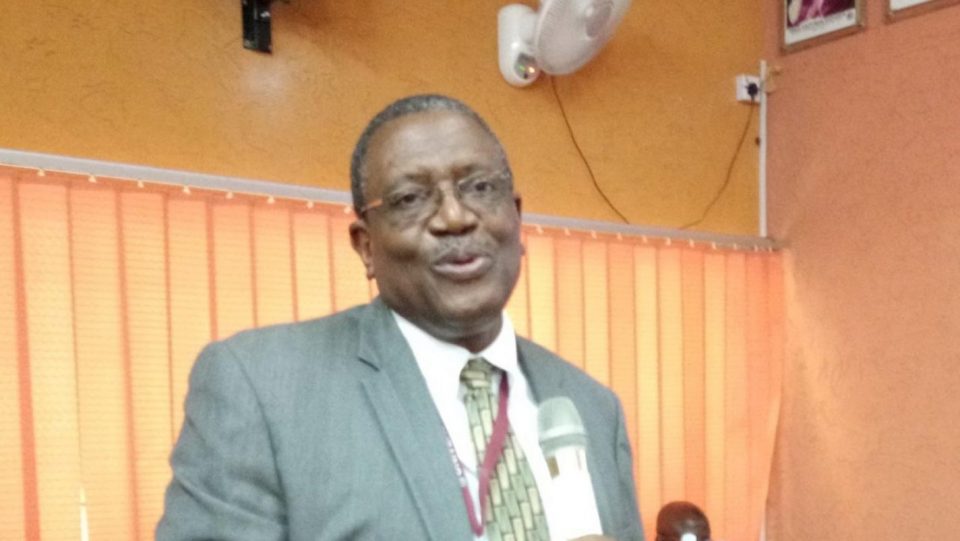Prof.Babajide Alo, one-time Deputy Vice-Chancellor (Academics and Research) University of Lagos, says about 90 per cent of chemicals currently used in Nigeria are imported.
Alo made the assertion during an inaugural lecture (2021) he delivered on Tuesday at the University of Lagos. The lecture was entitled: “Journeys into the Allures of Chemistry; Nostalgias of a Seeming Paradox”.
According to the professor of chemistry, it is now globally acknowledged that chemicals are essential requirements of modern society that need to be managed properly.
This, he said, was in order to achieve a sustainable level of agricultural and industrial development.
He added that chemicals were needed for a high level of environmental and human health protection.
Alo, retiring from the University of Lagos as he turned 70 on Tuesday, also said the environment could not be studied nor fully understood without chemistry.
The don explained that the use, storage, transportation and disposal of wastes rising from their use, was a pointer to a growing problem that threatened the health of the people and the ecosystem.
Alo noted that air pollution, that of inland waters, the marines, as well as land and many others that were injurious to human health, were mostly from chemicals largely organic toxicants and heavy metals.
“Chemistry, however, occupies a central position in finding solutions to all these problems.
”Perhaps the most important area for the application of chemistry to environmental challenges is in understanding the nature of the substances causing pollution and in the kinds of technology we need to use to control the pollution,” he said.
Alo called for provision of state-of-the-art equipment in the chemistry laboratories of the institution, with a high caliber NMR machine, Mass Spectrometer and others.
He also advocated increased funding for laboratory chemicals and consumables in the face of increasing number of students.
“The efforts of Nigerian universities to ensure application of research results have been inadequate.
“We need to further empower research offices, as well as look at the importance of not only undertaking researches, but also encouraging more multidisciplinary research in order to increase output of publications,” Alo said.
He also urged the Federal Government to deepen the domestication of relevant training, promote research and development and improve in local content drive in all the sectors of the economy, especially oil and gas.
“There is much to be done to strengthen interdisciplinary research, with roles of government, the full range of funders (including private industries and philanthropic organisations).
“This should also include research organisations and individual policies, practices, institutional structures, as well as support models for research governance, to shift to align with international best practices,” he said.
Lagos State Deputy Gov. Obafemi Hamzat, who was the keynote speaker at the event, said that the state had taken climate change issues seriously.
He added that the state government had put together policy frameworks and adopted global best practices to shape response to climate change challenges.
“We are aware that as a highly vulnerable coastal state with a rapidly growing population, we must act fast to protect its fragile ecosystem and population in low-lying areas.
“We discovered that waste sector emissions account for 25.3 per cent of the total greenhouse gases emission of Lagos State and it is expected to grow as a result of population growth.
“Therefore, our plan is to develop and enhance solid waste management infrastructure, develop alternative uses for organics, implement composting, refuse-to-energy and other waste recovery initiatives, and monitor, evaluate and appoint private sector participants (PSP) waste collection contract,” he said.
Earlier, the Vice-Chancellor of the institution, Prof. Oluwatoyin Ogundipe, lauded the retiring professor for contributions to the development of the university and the country at large.
He said that Alo’s efforts at improving research works among students and other scholars both locally and internationally had brought the university to global reckoning.
“As my mentor, we did a lot together, especially in the area of research.
“He has done well, not just for himself, this university, or the country, but the world at large.
“As he retires today, I will like to seize this opportunity to wish him well in his future endeavours in sound health.
“The university will continue to draw from his wealth of experience,” he said.



